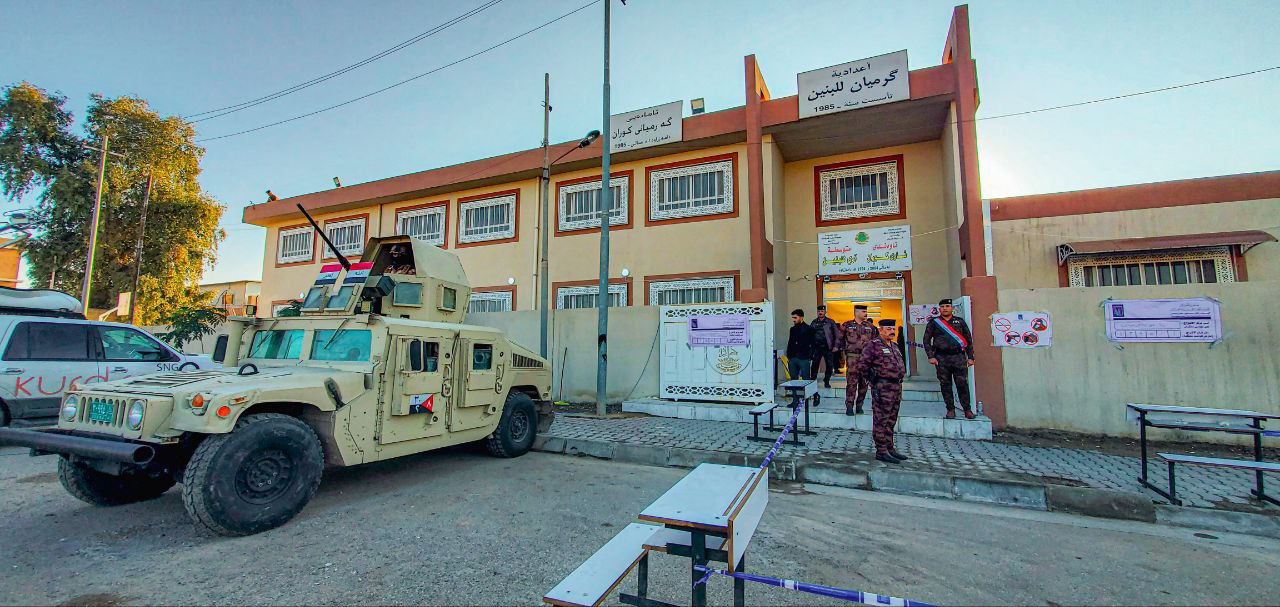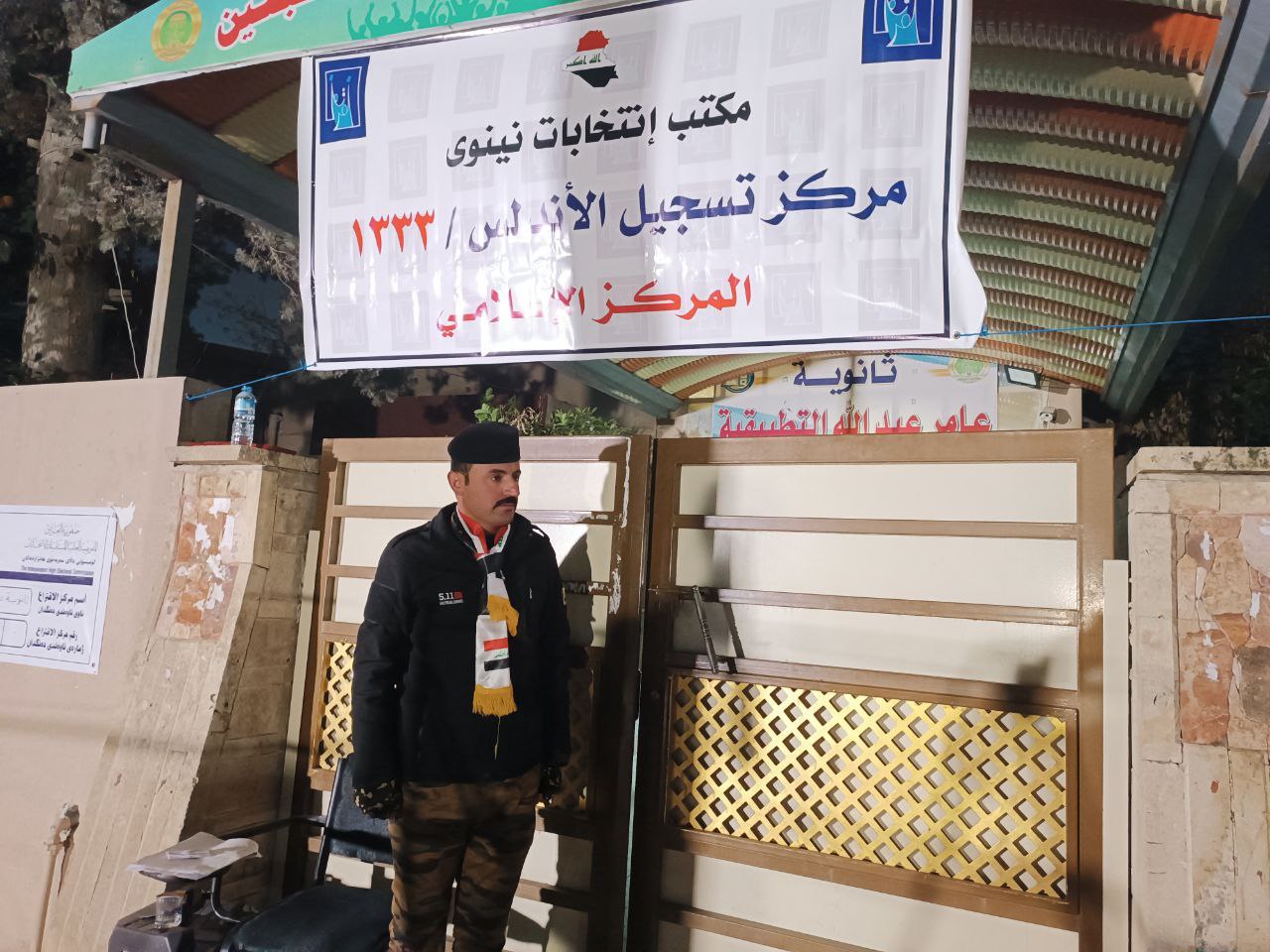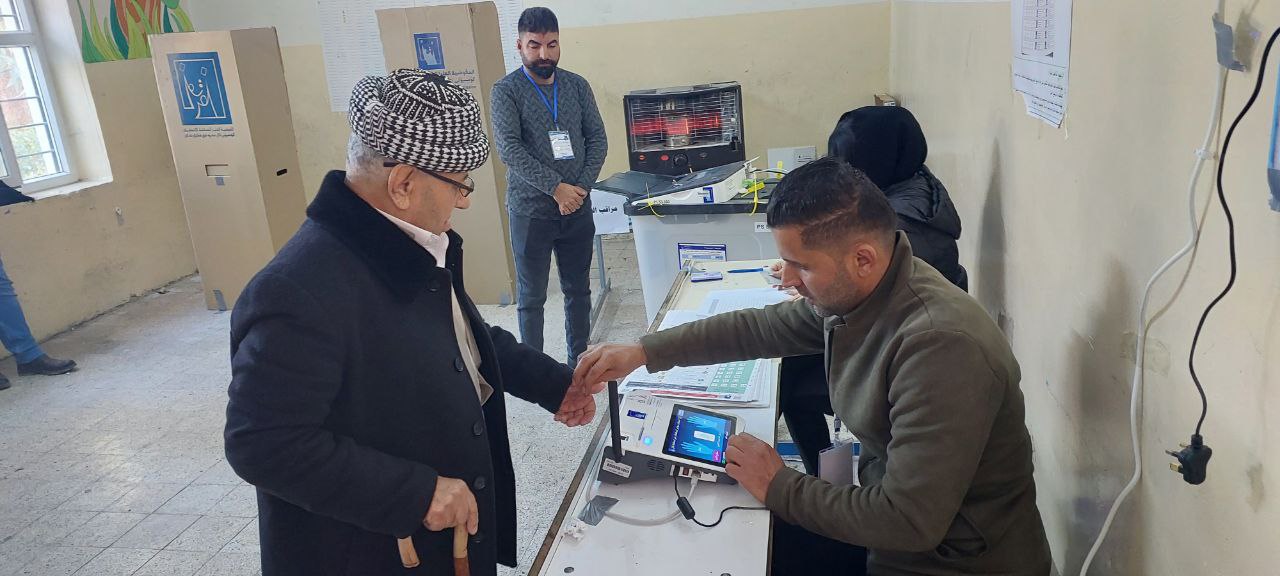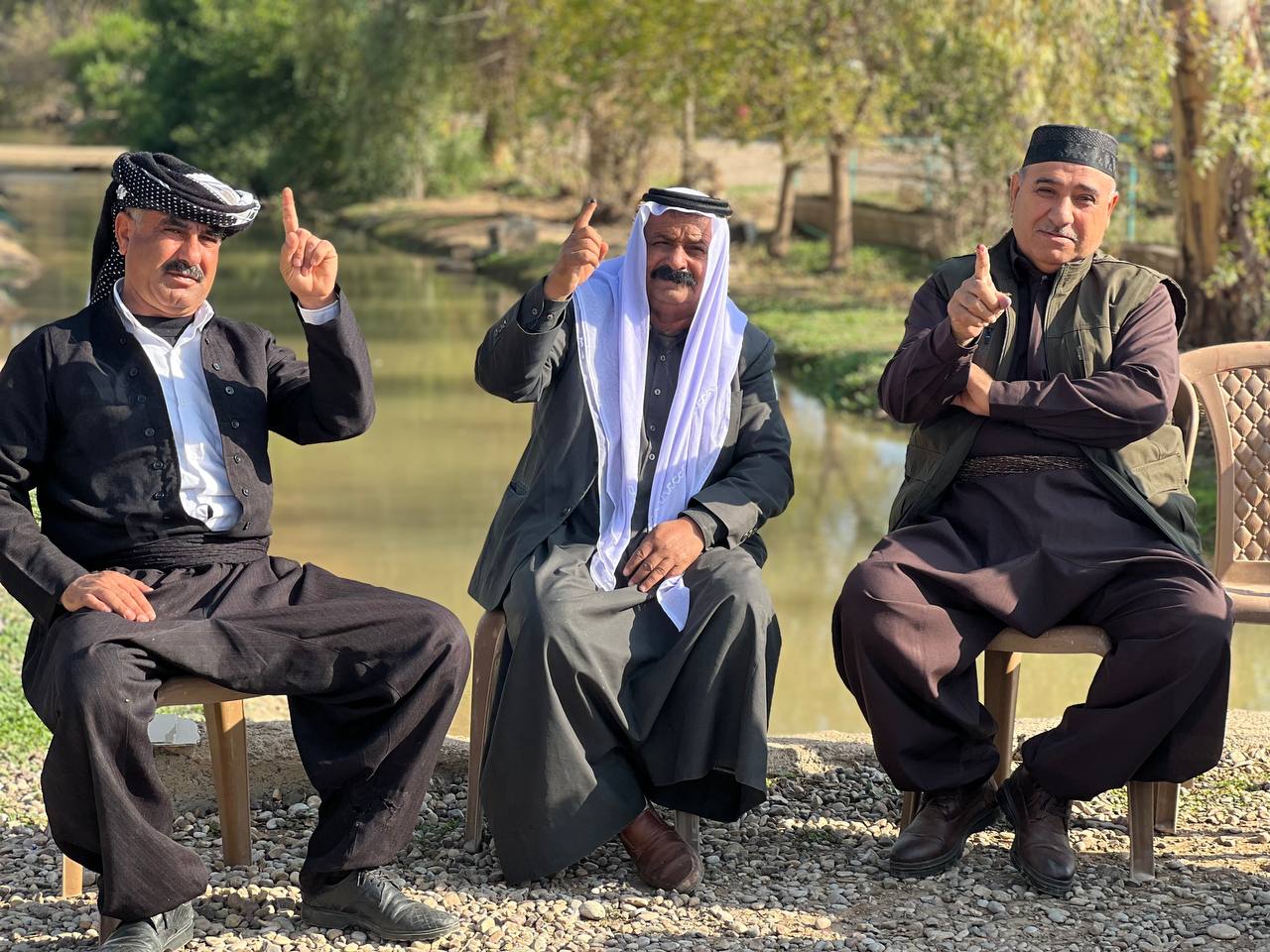The doors of polling stations in the Iraqi governorate elections closed after 11 hours, and the Election Commission to announce the preliminary results on Tuesday evening.
According to the observations of KirkukNow correspondents, who covered the elections in the disputed territories, the main problem faced by voters in the Kirkuk and Nineveh governorates was the failure of the electronic device to scan fingerprints of voters, which prevented hundreds of casting their votes.
General voting for the provincial council elections began at 7 am (Baghdad time GMT+3) up to 6 pm on Monday, December 18, 2023, throughout Iraq, excluding the Iraqi Kurdistan Region IKR. These elections are of great importance, especially for Kirkuk, as they have not been held in the governorate for 18 years due to disagreements between its components.
According to the figures by the Iraqi Independent High Electoral Commission IHEC, over 15 million people in the governorates of Iraq were entitled to participate in general voting to nominate 285 members for the provincial councils. The voting process was according to the biometric card.
The provincial councils have administrative and financial power as they draw the plan for the reconstruction of the province, maintenance of the public services in addition to nomination of the governor, his duties and director general of the state departments in the province.
The problem of proper scanning of fingerprints was repeated in most polling stations in Kirkuk. As a result, hundreds of voters from different components were deprived of voting, and some of them gathered in front of the Kirkuk office of the IHEC, demanding that the problem be addressed, but voting ended without finding a solution to the problem.
Officials from Arab and Turkmen regions, including Rakan Saeed, the acting governor of Kirkuk, who heads a coalition that participated in the elections, visited the Commission’s office for the same purpose, and the Patriotic Union of Kurdistan PUK, one of the leading Kurdish parties, also registered a complaint regarding this problem.
According to KirkukNow's observations, voters in other areas of Nineveh and Diyala faced the same problem.

In an electoral center in the Sheikhan district, home to the Ezidi community in Nineveh province, 93 voters were prevented from casting their votes because the voting device could not scan their fingerprints. The same thing happened with hundreds of voters in the Khanaqin district of Diyala province.
An official at the IHEC office in Khanaqin told (KirkukNow) that, “This problem is more widely faced by the elderly or those suffering from some chronic diseases such as hypertension and diabetes, as the devices find it difficult to read their fingerprints. I want to assure you that the problem is not with the devices.”
"The devices are programmed to allow up to 5 percent of voters to vote without using fingerprints. After that, the process stops and the voter's fingerprint must be taken," he explained.
As of 12 noon, the participation rate throughout Iraq had reached only 17 percent, with Kirkuk recording the highest participation rate, reaching 32 percent, followed by Anbar and then Nineveh, in which the participation rate reached 23 percent.
According to KirkukNow reporters, turnout increased after mid-day and as evening approached, with the political parties urging voters to participate.

The security and administrative authorities hailed the peaceful and successful process.
The spokeswoman for IHEC, Jumana Ghalai, said an hour before the closing of the polling centers and stations, “We recorded an increase in the number of voters and all the devices are working well. Until this moment, no violation has been recorded related to the elections or the security aspect.”
According to the media coverage of KirkukNow correspondents in the electoral centers designated for journalists, no security or electoral breach was recorded.
This comes at a time when Iraqi Interior Minister Abdul Amir al-Shammari announced that the security services arrested 303 people on charges of electoral promotion for a number of candidates near polling stations in different governorates.
The Alliance of National Networks and Organizations - consisting of a number of civil organizations that monitor the elections - revealed in its report that 82 voters were unable to easily reach the polling station, in addition to six attempts to prevent voters from reaching the polling stations, and the coalition’s observers monitored 86 cases of campaign for candidates and political entities near polling stations.
While 18 cases were recorded related to a shortage of basic materials necessary for the conduct of the voting process or malfunction of the equipment, in addition to preventing the entry of 15 observers and an agent of a political entity from entering the voting stations.

A polling station employee takes a voter’s fingerprint at an electoral center in Sheikhan district, Nineveh, December 18, 2023. Ammar Aziz.
In addition to the fingerprint problem, the low turnout was one of the most prominent features of these elections, especially in the capital, Baghdad.
The biometric card was a condition for voting in these elections, and according to the Commission’s statistics, as of December 15, more than 1,500,000 voters who updated their records had not received their biometric cards, including more than 83,000 in Nineveh, 65,000 in Kirkuk, and 42,000 in Diyala Governorate.
According to the election law, after the polling centers close, the results must be sent electronically to the main center of the Commission and the votes must be counted and sorted manually inside the electoral center. If there are problems with one of the boxes, it is transferred directly to the IHEC headquarter in Baghdad.
According to the procedures of the Supreme Security Committee for Elections, priority is given to transporting the electronic memory stick by air to the main center of the Commission in Baghdad.

The Election Commission stressed today that the preliminary results of the public and private voting will be announced within 24 hours, that is, on Tuesday, December 19.
The special voting process took place two days before the general vote, with the participation of more than a million voter from members of the security and military forces and the displaced.
Failure to scan fingerprints and the absence of the names of some voters in the registers were among the main problems faced by voters in private voting as well.
According to the law, the final results are announced after all appeals and complaints are resolved and approved.
The Independent High Electoral Commission in Iraq announced on Monday evening the success of the provincial council elections.





